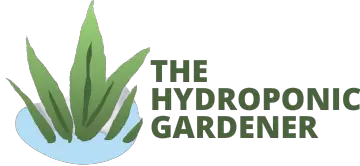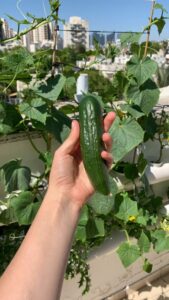Rockwool, a popular growing medium in hydroponics, offers several advantages for indoor and greenhouse gardening. It’s known for its excellent water retention and air permeability, essential for healthy plant growth. But how safe is Rockwool for growing plants? Here’s a deeper look at this growing medium, its benefits, and its safety for growing plants in your hydroponics system.

What is Rockwool?
Also known as stone wool or mineral wool is a fibrous material produced by melting basalt rock and spinning it into fine strands. These strands are then compressed into mats or cubes that can be used as a substrate in hydroponic systems. Rockwool is prized for its porous structure, allowing it to retain water while providing ample oxygen to plant roots.

Benefits of Using Rockwool for Plant Growth
Rockwool is safe for hydroponics and offers numerous benefits for growing plants. These include:
Excellent moisture retention
Rockwool has a large water retention capacity, which means it can hold onto water for longer periods without becoming waterlogged. This ensures a steady moisture supply to the plant’s roots maintaining optimal moisture levels for healthy growth.
Superior aeration properties
The fibrous structure of Rockwool balances water and air, allowing proper oxygenation of the roots, promoting healthy root development and preventing root rot.
Versatility
Rockwool material can be used for various hydroponic systems, including NFT (Nutrient Film Technique), DWC (Deep Water Culture), and Ebb and Flow, making it a versatile medium for different setups. It is also available in various sizes and shapes, such as cubes, slabs, and granules, allowing for easy customization and adaptability to different hydroponic systems and plant sizes.
Reusable
This growing media can be reused for multiple plant cycles with proper sterilization and cleaning. This makes it a cost-effective option in the long run, as it can be rinsed and prepared for the next crop.
Easy to use and handle
It is available in various forms, such as Rockwool cubes, slabs, and propagation plugs, making it easy to handle and transplant seedlings. Its structure also prevents the medium from compacting, ensuring good root development.
Faster growth rates
Hydroponic systems using Rockwool often result in faster plant growth compared to traditional soil-based gardening. The optimal water and nutrient availability in Rockwool promotes accelerated growth and higher yields.
Easy to use and expand
Rockwool is user-friendly and can be easily used by both beginners and experienced gardeners. It provides a stable and consistent medium for plant growth, allowing individuals to start and expand their gardens with ease.
Sterile and inert
Since it is an inert medium, it contains no nutrients and serves as a blank canvas, allowing growers to have precise control over the nutrients and fertilizers they provide to the plants. It is also free from pests and diseases, minimizing the risk of contamination and soil-borne diseases.
Excellent rooting support
The structure of this growing medium provides a stable and supportive environment for the root zone, allowing plants to deve
Safety Concerns Associated with Rockwool
Despite its benefits, there are safety concerns associated with Rockwool. The fibrous nature can cause skin irritation, and inhaling the small fibers can lead to respiratory issues. However, it’s important to note it does not contain asbestos, nor is it considered carcinogenic.
Rockwool is a versatile and efficient growing medium that offers significant benefits for hydroponic gardening. While some concerns are associated with its use, proper handling and disposal can mitigate these issues. This means that it is perfectly safe to use in your gardening. But to reap its benefits understanding how to properly use it is key.





